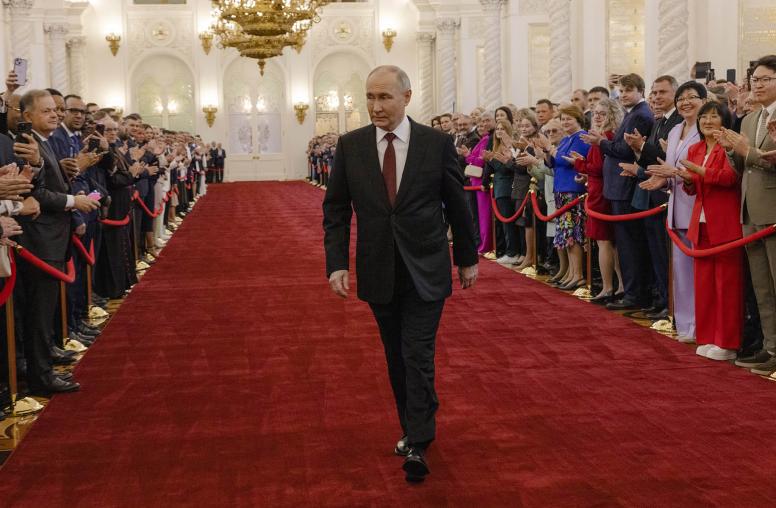Women in Ukraine's "Revolution of Dignity"
The crucible of Ukraine’s 2014 revolution that led to the downfall of a president was a central square, or “maidan,” in the capital Kyiv. At its core were women who helped fill the streets, energize the nation and sustain other protesters in the struggle. The U.S. Institute of Peace and the Atlantic Council on Thursday, March 23 held a screening of “Women of Maidan,” a documentary that tells the stories of key players who became crucial to the movement. The film was accompanied by discussions with the film’s producer and director, Olha Onyshko, and four former U.S. ambassadors.
Spurred by President Viktor Yanukovych’s abrupt decision in November 2013 to pull Ukraine away from an association agreement with the European Union, hundreds of thousands of Ukrainians came to the maidan. Their desire to be part of Europe was amplified by their frustration at widespread corruption that ultimately robbed citizens of their dignity. Thus, the revolt became known as the “Euromaidan Revolution” or the “Revolution of Dignity.”
“Women of Maidan” tells the story of women who served during the months-long demonstrations as paramedics, musicians, hospital guards, cooks and more. Onyshko introduced the film at USIP and answered questions afterwards.
Setting the scene in advance of the film with a discussion of developments in Ukraine since the revolution and their global implications was two former U.S. ambassadors to Ukraine, William B. Taylor and John Herbst, as well as Melanne Verveer, who was the first U.S. ambassador for global women’s issues, and Steven E. Steiner, who served 36 years in the U.S. Foreign Service before stints in the State Department’s Office to Monitor and Combat Trafficking in Persons and in the Office of Global Women’s Issues.
Speakers
Olha Onyshko
Producer and Director, “Women of Maidan”
Ambassador John E. Herbst
Director, Dinu Patriciu Eurasia Center, Atlantic Council
Ambassador William B. Taylor
Executive Vice President, U.S. Institute of Peace
Ambassador Melanne Verveer
Director, Georgetown Institute for Women, Peace and Security
Ambassador Steven E. Steiner, Moderator
Gender Advisor, U.S. Institute of Peace



